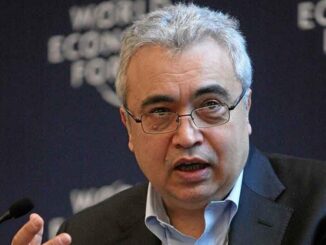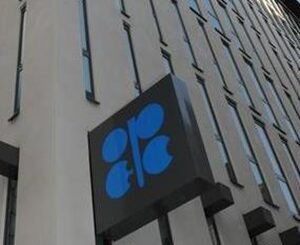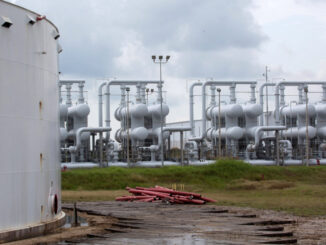
Crude oil futures were higher in mid-morning Asian trade July 15, shrugging off rangebound trading over the past two sessions, as investors weighed conflicting signals of deteriorating macroeconomic fundamentals and a still tight oil market.
At 10:20 am Singapore time (0220 GMT), the ICE September Brent futures contract was up $1.04/b (1.05%) from the previous close at $100.14/b, while the NYMEX August light sweet crude contract was 81 cents/b (0.85%) higher at $96.59/b.
Oil prices settled marginally lower in the overnight session July 14, paring steep losses earlier in the day, as investors continued to digest mixed signals about the outlook for oil.
“Recessionary fears continue to weigh on sentiment in the commodity sector. Commodities pared some of those losses after the Fed calmed markets about aggressive rate hikes,” ANZ Research analysts Brian Martin and Daniel Hynes said in a July 15 note, referring to some US Federal Reserve officials July 14 playing down reports of a 100 basis points hike in interest rates.
Multiple countries also continued to grapple with record power demand amid a searing heatwave, providing some support for oil.
Record high temperatures were recorded by 71 national weather stations in China over June 13-July 12, with the highest exceeding 40 degrees Celsius in many cities, state-owned media People’s Daily said July 14.
Similar heat records were being set across Europe, with droughts and forest fires reported in several countries, according to media reports.
Amid the searing temperatures, Russian officials said the future of the Nord Stream gas pipeline from Russia to Germany will depend on European gas demand and any adverse impact on the pipeline’s operation from sanctions against Moscow.
“As far as the gas pipeline’s future operations are concerned, much will depend on our partners,” foreign ministry spokesperson Maria Zakharova was quoted as saying by Tass news agency July 14.
Meanwhile, earnings season in the US provided a glimpse of deteriorating macroeconomic fundamentals, with major US banks JP Morgan and Morgan Stanley under-performing expectations for their Q2 results.
“Guidance for economic conditions from the major US banks point toward an impending slowdown, but it came with some downplaying of risks of a severe US recession with strength in consumer spending and labor markets,” IG market strategist Yeap Jun Rong said.
Dubai crude swaps were lower in mid-morning trade in Asia July 15 from the previous close, though intermonth spreads were higher.
The September Dubai swap was pegged at $88.95/b at 10 am Singapore time (0200 GMT), down 80 cents/b (0.89%) from the July 14 Asian market close.
The August-September Dubai swap intermonth spread was pegged at $3.39/b at 10 am, up 11 cents/b over the same period, and the September-October intermonth spread was pegged at $2.58/b, up 14 cents/b.
The September Brent/Dubai EFS was pegged at $10.93/b, up 18 cents/b.
Source: Spglobal.com



